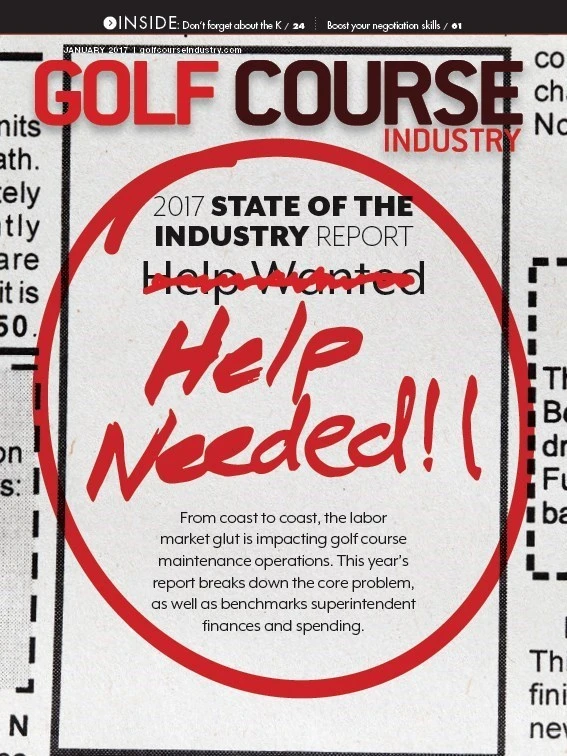“Hope smiles from the threshold of the year to come, whispering ‘it will be happier.’”–Alfred Lord Tennyson
As the esteemed poet laureate for England and Ireland wrote in his 1892 tale of Robin Hood, the new year ushers in the annual opportunity to reset your personal and career compass.
Soon golf professionals will be off to the PGA Show, golf course superintendents will travel to the Golf Industry Show and club managers to their World Conference. The goal for every pilgrimage (in addition to finding warmer weather and reacquainting with friends) is to improve knowledge and skills.
You’ll improve your chances of doing that by accomplishing a few tasks before packing your bags. First, complete your annual plan for your facility. Your annual plan forms the basis for your show strategy. Here are a few other suggestions offered from the threshold of a new year.
Superintendents
- Many superintendents use their agronomic plans to establish expectations, define standards of care and educate members. With these goals in mind, head to your show with a bias toward learning. Study best practices, compare them with your opinions and integrate new knowledge into your plans.
- Dedicate yourself to finding new solutions for labor costs. With more than one-half of the facility budget for greens and grounds dedicated to labor, this must be a point of emphasis. As national labor policy changes, demands on management professionals in every category will be more strident and urgent. Three sure-fire steps that you can take to manage labor costs: ask peers about labor solutions that are working for them, research labor solutions in non-golf categories and, if you think you might be perpetuating outdated methods, rethink your labor and scheduling plan.
- Remember the science of your profession. As the most knowledgeable scientist at most clubs, superintendents’ scientific knowledge may be taken for granted. Don’t make that mistake, use the GCSAA educational platform as an invaluable resource and keep current.
Golf professionals
- With less than 10 percent of private clubs in North America full and most daily-fee courses in a constant state of recruitment, golf professionals should work to improve their selling skills. Three steps you can take to improve your sales skills: build a library of selling resources, including skills and rainmaking; develop your own method of managing relationships with your golfers and provide new services so they rely upon you more.
- Expand your reach in your community. For golf to increase participation – especially among women and children – more people need to be invited to and find comfort at the golf course. That falls to the golf professional and his or her staff. One opportunity is to participate in scouting programs that bring young boys and girls to your course. Teach the business skills, environmentalism and character virtues that help them earn badges. In turn, they’ll tell their mothers and fathers, who will appreciate and reward your interest in their families.
Club managers
- Demanding times require bold and target-specific goals. Set bigger goals for your club by focusing on leadership, revenue growth and your club’s brand. As you do, make sure those goals and your intended results are aligned.
- Healthy clubs are growing and replacing members who leave. Their secret lies in ongoing membership recruitment and retention. Keeping your club vibrant requires deliberate planning and execution. Increasing relevance helps to keep members engaged. Greater engagement leads to more member referrals. As a rule of thumb, successful membership recruitment is converting 10 percent of qualified leads into members. The membership recruitment net must be cast far, wide and consistently.
- Remember that club culture lies within governance and governance is often a reflection of leadership. Therefore, leaders must act with greater purpose. The most consistent example of leadership is the club manager who sets the priorities and tone for day-to-day management activity. Monitor your own daily behavior to ensure it reflects your long-term goals.

Explore the January 2017 Issue
Check out more from this issue and find your next story to read.
Latest from Golf Course Industry
- SePRO to host webinar on plant growth regulators
- Turfco introduces riding applicator
- From the publisher’s pen: The golf guilt trip
- Bob Farren lands Carolinas GCSA highest honor
- Architect Brian Curley breaks ground on new First Tee venue
- Turfco unveils new fairway topdresser and material handler
- Ignite Attachments adds new box plane and grapple
- Mackenzie & Ebert working on new Caribbean course






